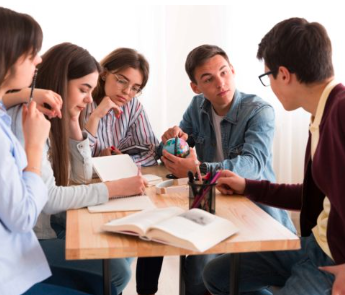Collaborative learning is more than just group work—it’s a chance to grow by sharing knowledge, supporting peers, and developing teamwork skills that last a lifetime. When students embrace collaboration with the right study habits, learning becomes more engaging and meaningful. Here are some student-friendly habits that make teamwork both enjoyable and effective.
1. Come Prepared to Share
One of the most respectful things you can do in a study group is to arrive prepared. Whether it’s reviewing the material beforehand or bringing thoughtful questions, being ready shows commitment and encourages others to do the same.
2. Listen as Much as You Speak
Good communication is key to collaboration. Active listening helps build trust, prevents misunderstandings, and allows everyone to contribute meaningfully. Giving full attention to peers when they speak creates a positive and productive learning space.
3. Set Clear Goals Together
At the start of any group study session, decide on what you want to accomplish. Clear objectives—like reviewing a chapter, solving a set of problems, or preparing a presentation—keep everyone focused and motivated.
4. Use Positive Feedback
Encouragement goes a long way in group settings. Complimenting a peer’s idea or progress can boost confidence and reinforce a culture of kindness and support.
5. Divide Tasks Based on Strengths
Each person brings something special to the table. Assigning roles based on individual strengths—such as note-taking, summarizing, or explaining complex ideas—can make group study more efficient and rewarding.
6. Review and Reflect as a Group
At the end of each session, take a few minutes to reflect on what was learned and how the group worked together. This habit helps identify areas for improvement while celebrating progress.
7. Be Open to Different Perspectives
Collaborative learning thrives when students value diverse viewpoints. Embracing different ways of thinking can lead to deeper understanding and fresh insights.
8. Create a Consistent Study Routine
Consistency builds comfort. When a group meets regularly, it forms strong habits and trust, making collaboration more effective over time.
Final Thought:
Collaboration doesn’t just improve academic performance—it nurtures lifelong skills like communication, empathy, and leadership. By adopting these simple study habits, students can make group learning a fun, supportive, and successful experience.














